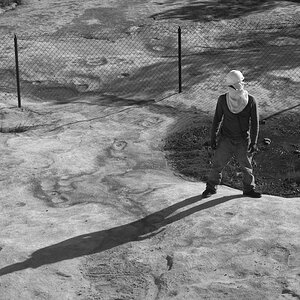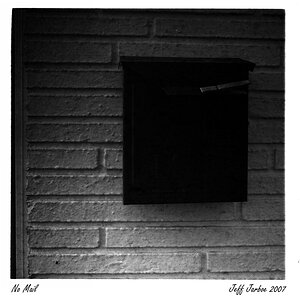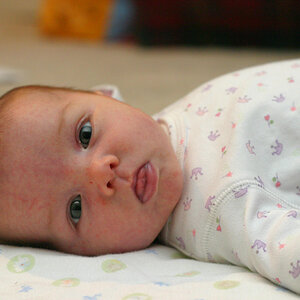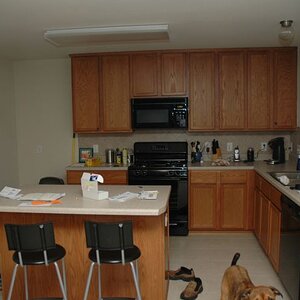JDP
TPF Noob!
- Joined
- Aug 16, 2006
- Messages
- 285
- Reaction score
- 0
- Location
- Minneapolis, MN
- Website
- www.pavleck.com
- Can others edit my Photos
- Photos OK to edit
Am I the only one that feels they take better pictures when they have better gear not because the gear is superior to other gear, but because it gives them more confidence?
Take lenses, I have the Nikkor 50mm 1.8. Great lens, for sure. But I consistently take better photos when I'm using a heavier piece of glass, such as the 17-55mm f/2.8. I'm not sure if it's just that I've *used* that particular lens a lot more, but I think that when I have it, it feels more right to me.
Just something I was mulling about in my head. Just like I feel I take better pictures when I'm in a crowd then not. I have a thing against crowds, I hate them. They make me uneasy. With the camera in my hands, I have to focus on what I'm doing, and take 'slices' of the scene in - so because I concentrate and pay more attention in a crowd, my shots tend to come out more refined.
I don't know, just some random thoughts from me.
Take lenses, I have the Nikkor 50mm 1.8. Great lens, for sure. But I consistently take better photos when I'm using a heavier piece of glass, such as the 17-55mm f/2.8. I'm not sure if it's just that I've *used* that particular lens a lot more, but I think that when I have it, it feels more right to me.
Just something I was mulling about in my head. Just like I feel I take better pictures when I'm in a crowd then not. I have a thing against crowds, I hate them. They make me uneasy. With the camera in my hands, I have to focus on what I'm doing, and take 'slices' of the scene in - so because I concentrate and pay more attention in a crowd, my shots tend to come out more refined.
I don't know, just some random thoughts from me.



![[No title]](/data/xfmg/thumbnail/35/35953-1a8b92df0115ff7026f31b78855ac815.jpg?1619737264)









